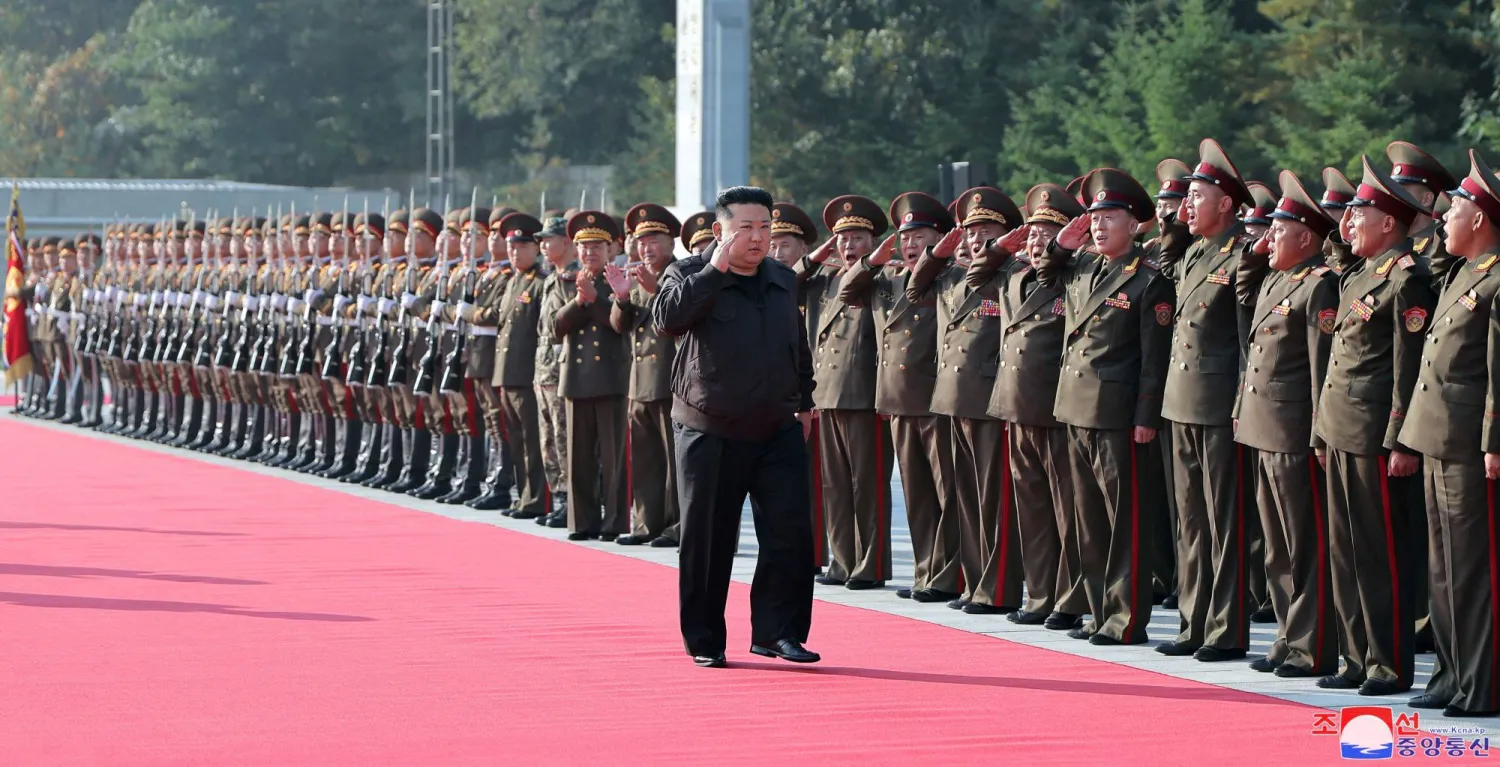North Korean leader Kim Jong Un has described South Korea as a foreign and hostile nation, state media KCNA reported on Friday with photos showing Kim and high-ranking military personnel at a command post poring over a map labelled "Seoul.”
The report comes a day after KCNA said North Korea amended its constitution to designate South Korea a "hostile state" and dropped unification of the two countries as a goal, Reuters reported.
Kim has increasingly lashed out at South Korea this year, accusing Seoul of colluding with Washington to seek the collapse of his regime.
The reclusive state blasted road and rail links with South Korea this week. Those actions underscored "not only the physical closure but also the end of the evil relationship with Seoul," KCNA quoted Kim as saying.
Seoul has said that if North Korea were to inflict harm upon the safety of its people, "that day will be the end of the North Korean regime."
Kim made the remarks while inspecting the headquarters of the 2nd Corps of North Korean army on Thursday, KCNA said. During the visit, he also said the changed nature of the South Korea-US alliance, and their different, more developed military maneuvers highlight the importance of a stronger North Korean nuclear deterrent.
"Kim is trying to mentally fortify the frontline soldiers with his comments" said Yang Moo-jin, president of the University of North Korean Studies in Seoul.
"This 'two hostile countries' rhetoric is, in the end, Kim Jong Un's survival strategy... Don't interfere, live separately as a hostile country. It's a path (North Korea) has never gone before, and no one can be sure about its success."
On Sunday, South Korea will begin annual large-scale military exercises called Hoguk to improve operational performance, the country's Joint Chiefs of Staff said on Friday.
Kim Jong Un Calls South Korea Foreign, Hostile Country

This picture taken on October 17, 2024 and released from North Korea's official Korean Central News Agency (KCNA) via KNS on October 18, 2024 shows North Korea's leader Kim Jong Un (C) visiting the command of the 2nd Corps of the Korean People's Army, at an undisclosed location in North Korea. (Photo by KCNA VIA KNS / AFP)

Kim Jong Un Calls South Korea Foreign, Hostile Country

This picture taken on October 17, 2024 and released from North Korea's official Korean Central News Agency (KCNA) via KNS on October 18, 2024 shows North Korea's leader Kim Jong Un (C) visiting the command of the 2nd Corps of the Korean People's Army, at an undisclosed location in North Korea. (Photo by KCNA VIA KNS / AFP)
لم تشترك بعد
انشئ حساباً خاصاً بك لتحصل على أخبار مخصصة لك ولتتمتع بخاصية حفظ المقالات وتتلقى نشراتنا البريدية المتنوعة







